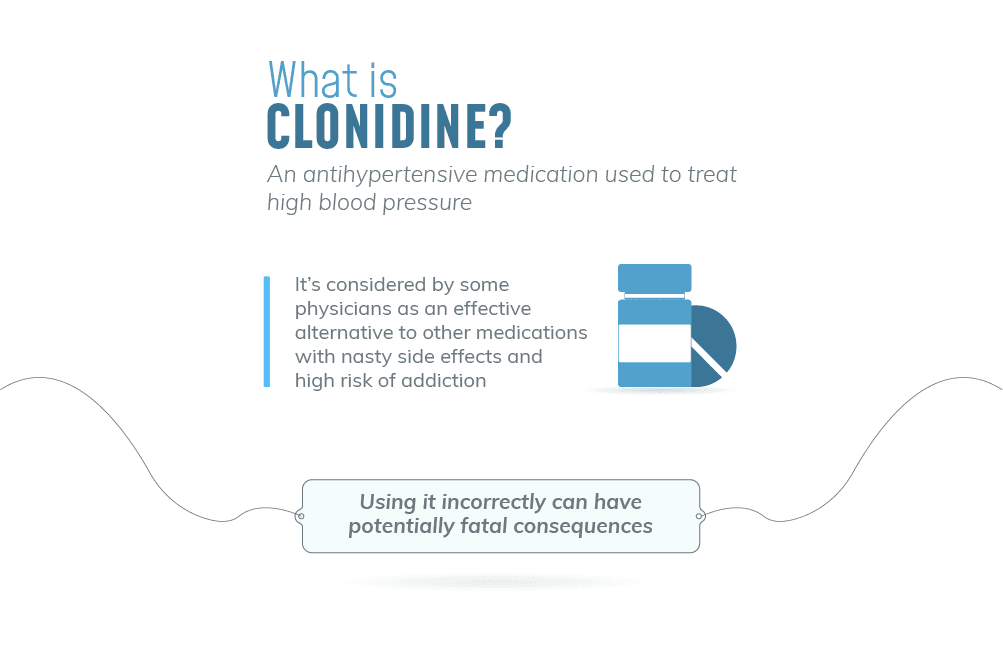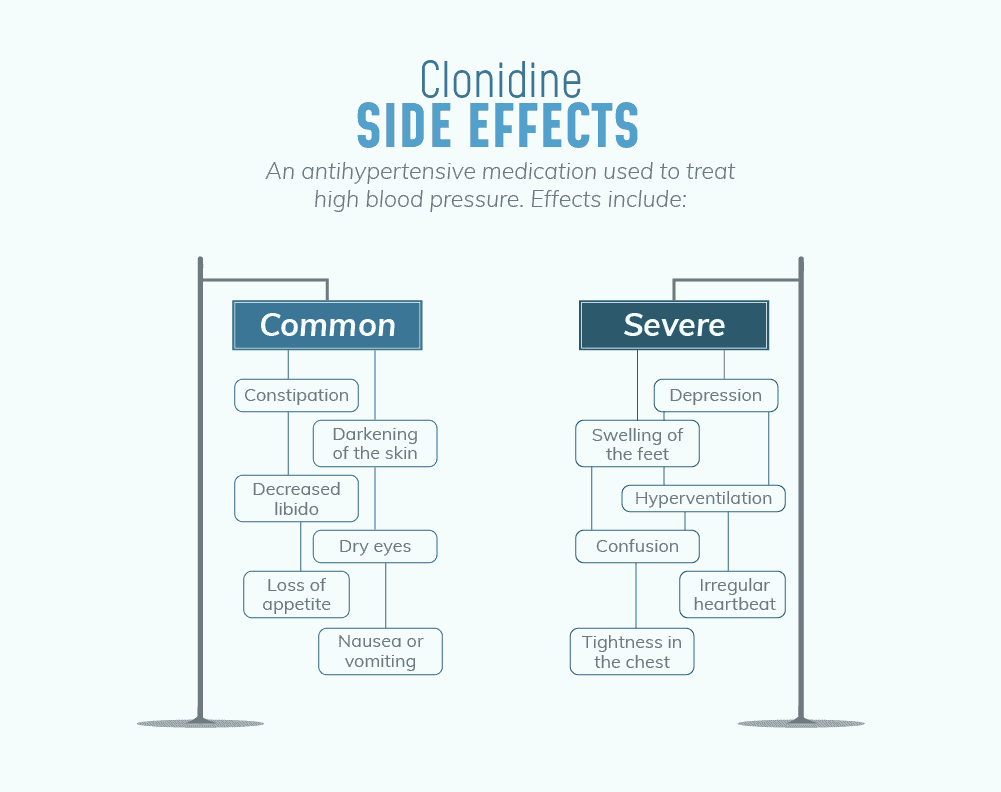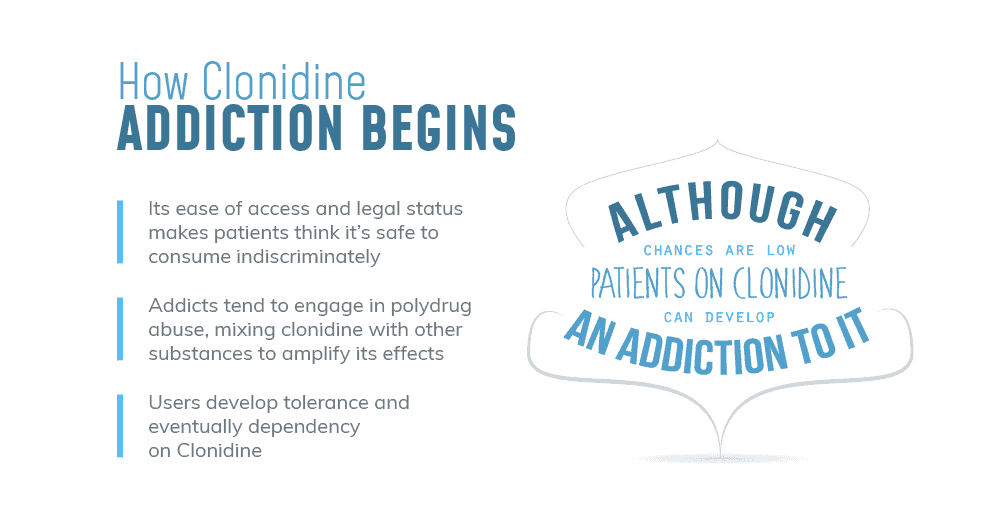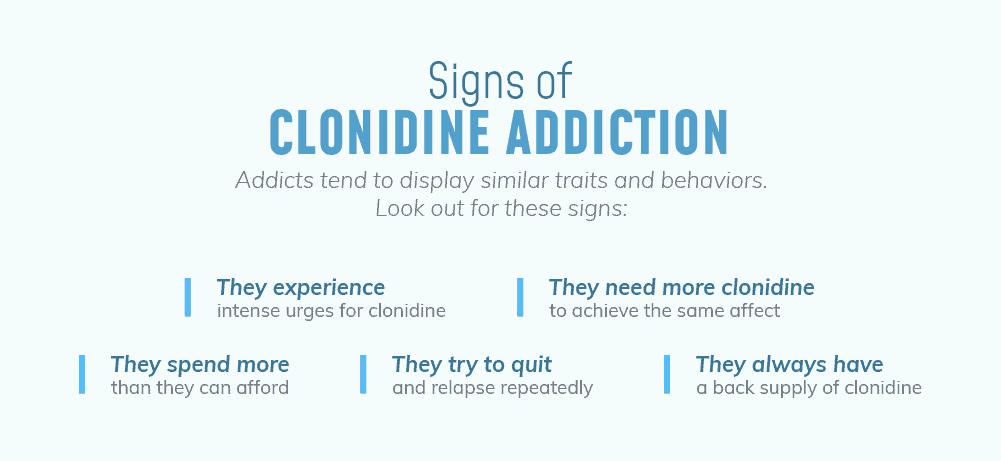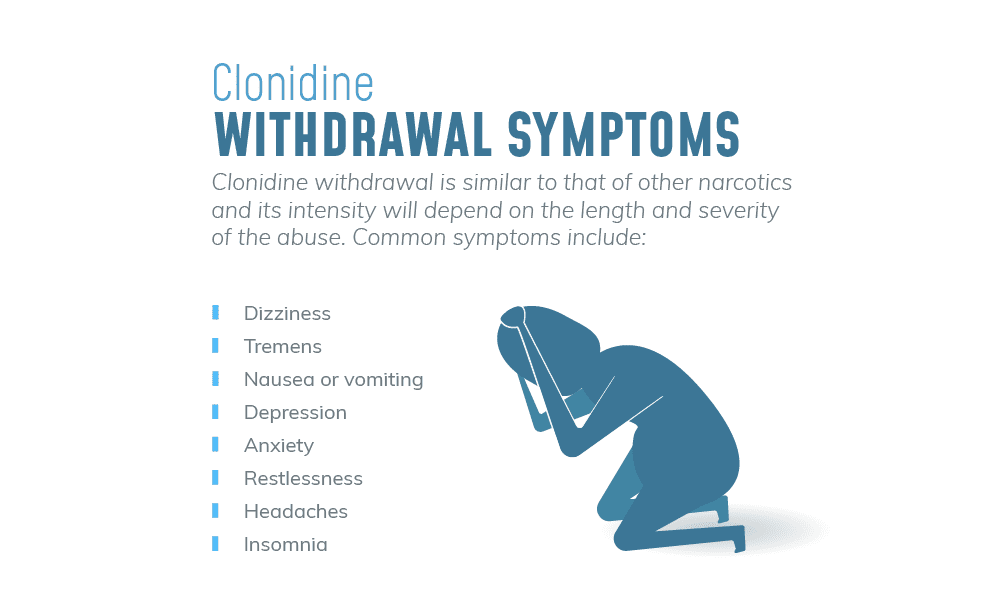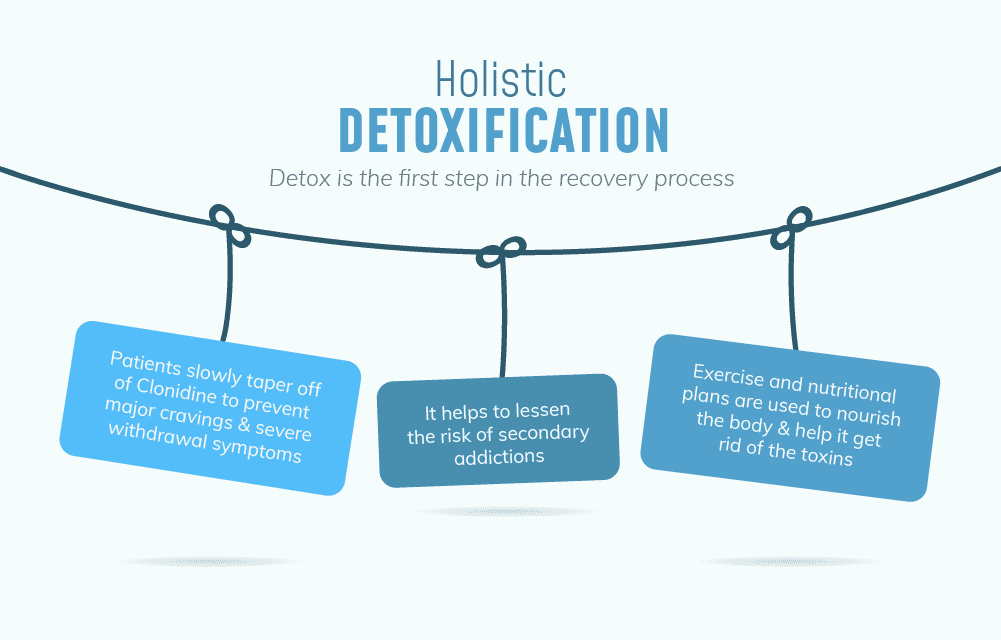Meth, cocaine, and heroin are well-known illegal drugs that cause addiction. However, many prescription drugs are becoming more popular to abuse amongst different groups. Clonidine, a medication doctors prescribe to treat high blood pressure, is becoming increasingly more abused and addictive by the people who use it.
Trying to quit Clonidine on your own can be intimidating and dangerous. If you are ready to take the first step toward a sober future, you can find help from the team at Northpoint Recovery. Your prescription drug addiction treatment plan can help you gain helpful skills on the road to recovery. Call 888.296.8976 today to get started.
What Is Clonidine?
Clonidine is a medication doctors prescribe to treat hypertension. It belongs to a class of drugs known as alpha agonists, which block specific receptors in the brain to control blood pressure and heart rate.
While this medicine can be helpful, it can also be addictive to many people trying to get high or reduce uncomfortable withdrawal symptoms.
Clonidine addiction can happen to anyone and is not exclusive to specific age groups or genders. The high from abusing this drug comes from the way it interacts with a particular receptor in your brain, which leads to euphoric sensations and mood changes that many people find pleasant. Clonidine also eases uncomfortable withdrawal symptoms from other drugs.
Clonidine Side Effects
When taken as prescribed, clonidine can be an effective medication that helps many people control their blood pressure. However, there are some severe side effects to watch out for when taking this drug.
Some of the most common side effects of clonidine include:
- Headaches
- Drowsiness or dizziness
- Low blood pressure
- Nausea
- Vomiting
- Constipation or diarrhea
- Dry mouth
Clonidine addiction can also cause more severe side effects, such as hallucinations and seizures. Even after dealing with some of these adverse side effects, people who abuse clonidine may continue to take it in high doses since they depend on it.
Clonidine Abuse
Clonidine has a high potential for abuse. While this medication works for people who need help controlling their blood pressure and other heart health issues, many other individuals may be using clonidine for different reasons.
Many people who take clonidine recreationally do so because it produces relaxation and sedation. It can also help reduce some of the uncomfortable withdrawal symptoms people experience when quitting other drugs, such as alcohol or opioids.
The way clonidine interacts with receptors in your brain is similar to how opioids work. This similarity can cause people to develop a dependence on the drug quickly. Clonidine abuse often leads to tolerance, which means people need to take higher doses to experience the same effects.
Signs of Clonidine Addiction
Clonidine addiction isn’t uncommon. When you are addicted to a drug, you may be aware of the adverse effects on your life, but you continue to use it despite your better judgment. You might experience some of these signs and symptoms:
- Developing an increased tolerance for the drug
- Experiencing withdrawal symptoms when you try to quit
- Prioritizing drug use over work, school, or hobbies
- Spending large amounts of money on the drug, even though you can’t afford it
- Neglecting your appearance or hygiene
- Lying or stealing to get more of the drug
Clonidine Withdrawals
Quitting clonidine cold turkey is not recommended. If you take the drug for an extended period, your body has become dependent on it. When you try to quit, you will experience withdrawal symptoms.
Withdrawal symptoms can be uncomfortable and even dangerous. Some of the more common symptoms include:
- Insomnia, nausea, and vomiting
- Tremors or shaking
- Seizures, hallucinations, and other psychotic behaviors
- Anxiety and depression
- Dizziness and headaches
Clonidine can be especially dangerous to try and quit since it controls blood pressure. Quickly stopping the medication can cause rapid changes in blood pressure, which can cause medical emergencies. It is critical to seek professional help when attempting to quit clonidine so medical professionals can monitor your symptoms.
Detoxifying from Clonidine
The first step to quitting clonidine is going through medical detox. Medical professionals will closely monitor your health during this process and can adjust your treatment plan as needed to help you safely detox from the drug.
Medical detox focuses on slowly weaning you off of clonidine so that you experience minimal withdrawal symptoms. It involves tapering off the medication and using other medicines to help relieve symptoms.
Detox is usually a short-term process that lasts one week to a few weeks. Once your body has adjusted to being drug-free, you can start an addiction treatment program for further care.
Clonidine Addiction Treatment at Northpoint Recovery
Northpoint Recovery offers comprehensive addiction treatment programs to help you heal from your clonidine addiction. Your long-term treatment plan works to fit your needs while prioritizing your comfort and safety.
Don’t let clonidine run your life. Take the first steps toward a sober future today by calling 888.296.8976.
What Did you Think About This Blog?
Give it a Rating!


